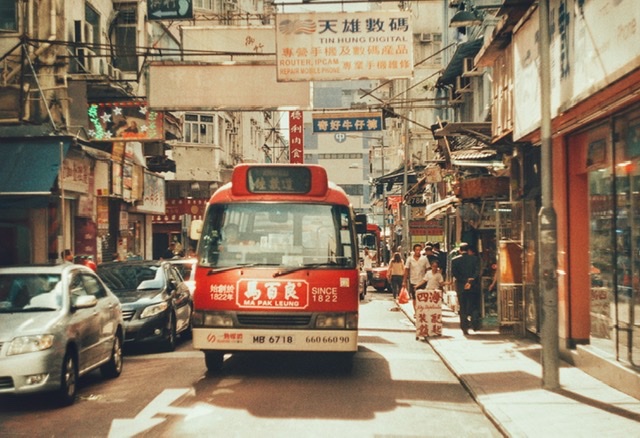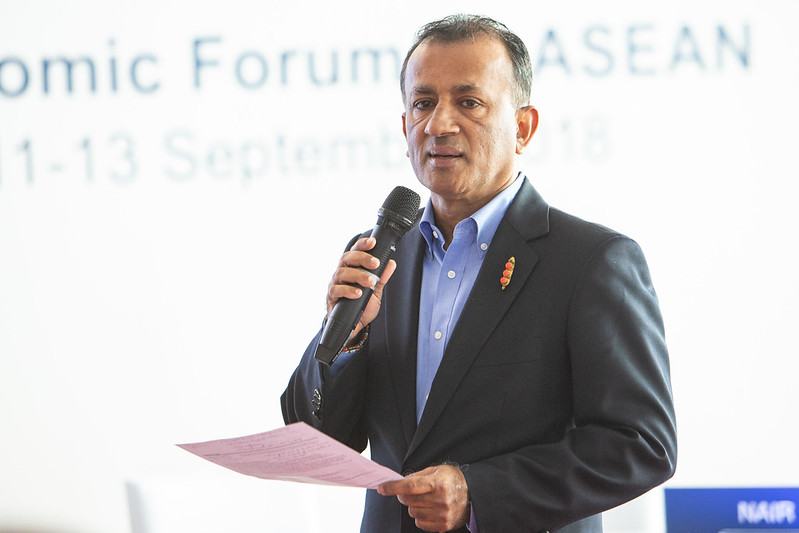Quarantine, what quarantine? Nicole Kidman, expats and white privilege
September 4, 2021
The unsaid but common understanding about foreigners in many parts of the non-Western world is that there is one group of them who can get away with a great deal: white people.
They are mostly referred to as expats, whereas non-white aliens fall into such categories as immigrants and guest workers. And being an expat comes with a range of privileges. Call it white privilege if you want. It does not only exist in America; it is a global phenomenon.
This privilege was the subject of heated debate last week in Hong Kong, a city that has for a long time been enthralled by all things Western due to its 150 years of colonization by the British. But even in Westernized Hong Kong, outrage was sparked because the Hollywood actor Nicole Kidman was allowed into the city without quarantine (seven days for Australian travelers at the time of her arrival, but increased shortly after to 14 days for the fully vaccinated and 21 days for the unvaccinated). This waiver was so that she could take part in the filming of an upcoming American drama series for Amazon Prime. Ironically, the series is called Expats.
The Janice Y.K. Lee novelon which the series is based is a nuanced reading of race and class, and one that does not always portray expats in a positive light. But the filming of the series seems to be making the opposite point: that a world famous white actor can do what they want and skip isolation at a time when local authorities had just made a very unpopular decision to reinstate, for several countries, a three-week quarantine periodthe worlds longest. This restriction has affected thousands of people trying to reunite with loved ones or run their businesses
Neither Kidman nor Amazon seem to have commented on the controversy, but in any case the culpability mainly rests with the Hong Kong government, which has vigorously defended the exemption it granted to the actor and four other members of the production team. Officially, there have always been exemptionsfor those providing professional services in the interest of Hong Kongs economic development, and the government points out that thousands of Hong Kong residents returning to the city from China can enter without quarantine, as do long haul truckers and diplomats. But this has not gone down well with most business leaders, local or foreign. It has also sparked fury and despair among Hong Kong residents in Australia seeking to travel home.
Business owners, whose activities have a much more direct impact on the economy than an Amazon Prime TV show, are frustrated that they have not been granted the same privileges. Many travelers have had to endure 21 days in a cramped hotel roompaying thousands of dollars, with some experiencing PTSD, depression and insomnialong after their confinement. But Kidman gets to come and go from an $83,000-a-month mansion and Amazon has not even waited for the scandal to subside before starting filming. In fact, the initial shoots have only drawn more flak. According to local media, the production crew orientalized a street market, in cringeworthy fashion, by bringing in exotic Chinese props such as lanterns and calligraphy scrolls. Criticism has also been made of dozens of crew members and extras gathering together without masks, which are compulsory in public spaces in Hong Kong.
Hong Kongs Commerce and Economic Development Bureau says it does not collect any information on the race or ethnic background of those exempted from quarantine, but it seems unlikely that an Indian, Vietnamese, or Nigerian actor, even if they were to have a global reputation, would have been simply waved through. A Philippine director shooting a film about the lives of tens of thousands of female domestic helpers in Hong Kong who are all critical to the economy would have a slim chance of getting the same perk, even if they, like Kidman, had arrived from Australia. Thousands of domestic helpers stuck in the Philippines and Indonesia are only just now being allowed back in and naturally have to undergo the three-week isolation.
Sadly, the people of Hong Kong have long viewed white privilege as how the world works. It is what they even seek, with their Western names, love of Western brands and enthusiasm for Western passports and Western universities. This was evident during the protests of 2019, when the Stars and Stripes and the Union Jack flew from the barricades, and young demonstrators assaulted mainland Chinese bystanders but left white people alone. Many protesters even sought support from Donald Trump and his merry band of white supremacists. This colonization of the mind is the result of decades of subjugation.
Across Asia, white privilege has persisted well after the end of empire. A 2016 study by the UKs Economic & Social Research Council found that expats in low-income countries can earn up to 900% more than their local colleagues. In Hong Kong, a foreign middle manager costs an average of $284,466 a year to employ, taking into account benefits such as accommodation, cars and so on. The average salary for a local middle manager, who almost never receives such benefits, is just over $98,000.
But it isnt just employment. Almost every aspect of lifethe sports we play, the clothes we wear, what children are taught in schools, the books and news we read, the television we watchis predominantly influenced by the West. With white privilege integrated across the region, expat communities routinely get away with bad behavior. In the early days of COVID-19, they were some of the worst offenders of the rules about wearing masks, gathering in groups, and social distancing. FromKuala Lumpur to Bangkok, individual expats did not appear to feel an obligation to the welfare of the local population. In Hong Kong,a news reportsaid the expat community was widely perceived to be more reluctant to engage in social distancing or put on masks, and spoke of a cultural gulf.
The preferential treatment accorded to white people is so widespread that even wealthy, Western-educated Asians can experience discrimination in restaurants, airports and upscale shops. Many will know the humiliating experience of being challenged at the entrances to posh apartment buildings or hotels, while white people are allowed to saunter through.
The Kidman affair also invites discussion of an often ignored subjectthat white women profit from this structural racism. It confers privileges that they leverage even as they selectively oppose other injustices that affect them, such as sexism. Common conversations around the privilege of white women extend to Karens, white saviour complex,white tears, and missing white women syndrome. These phenomena are not seen as having anything like the impact of white men. But white women are certainly the allies of white men, who are often portrayed as the sole flag bearers of Western efforts to maintain economic and social power across the globe.
Nicole Kidman may not perceive herself as part of that pecking order. She once famously refused to use a racial slurin the script of_The Paperboy_and that is to her credit. But while she may reject the most obvious and offensive acts of racism, the truth is that she remains the beneficiary of a wretched global system one that is obligingly upheld, far too often, by non-white people themselves. However sensitively Expats tries to portray race, it is now associated with a callous display of white privilege, and Eastern obsequiousness, in their crudest forms.
This article was first published byTimeand is reproduced with permission.

